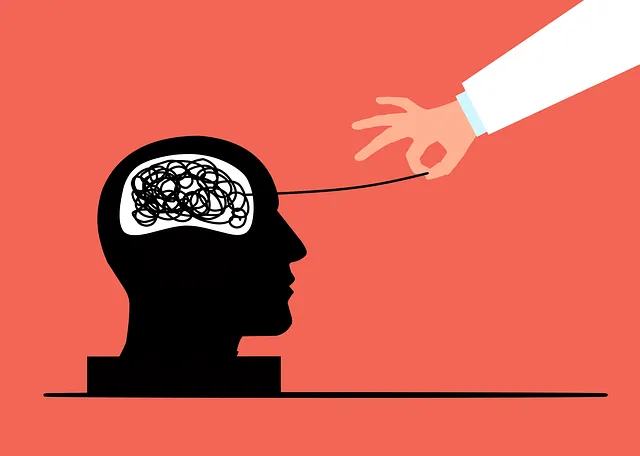The Kaiser Permanente mental health center in Castle Rock emphasizes the importance of coping skills for mental well-being, offering programs like Stress Reduction Methods, Social Skills Training, and Self-Esteem Improvement. They provide practical tools such as mindfulness, deep breathing, and muscle relaxation, prioritizing self-care through journaling, physical activity, and sleep promotion. Through Compassion Cultivation Practices (CCP), the center cultivates resilience, improving participants' ability to handle challenges in daily life, work, and relationships, ultimately enhancing mental well-being and quality of life.
Coping skills are essential for navigating life’s challenges and maintaining mental well-being. In this article, we explore the foundational role of understanding coping mechanisms, focusing on the expertise of Kaiser Permanente Mental Health Center Castle Rock in teaching effective strategies. We delve into practical techniques to enhance coping abilities and discuss building resilience for long-term benefits, offering applicable insights for daily life. Discover how these skills can revolutionize your approach to stress and adversity.
- Understanding Coping Skills: A Foundation for Mental Well-being
- The Role of Kaiser Permanente Mental Health Center Castle Rock in Teaching Effective Coping Strategies
- Practical Techniques to Enhance Coping Abilities
- Building Resilience: Long-term Benefits and Application in Daily Life
Understanding Coping Skills: A Foundation for Mental Well-being

Coping skills are essential for maintaining mental well-being, and understanding their significance is a crucial step toward fostering resilience. At the Kaiser Permanente mental health center in Castle Rock, we recognize that effective coping strategies can significantly impact an individual’s overall health and happiness. These skills empower people to navigate life’s challenges, manage stress, and overcome difficult situations. By learning and practicing healthy coping mechanisms, individuals can reduce the risk of developing mental health disorders and enhance their ability to cope with future stressors.
Our approach focuses on educating individuals about various Stress Reduction Methods, as promoted by many mental health professionals. This involves teaching techniques such as mindfulness, deep breathing exercises, and cognitive reframing. Additionally, we highlight the importance of Community Outreach Program Implementation, where support networks and community resources play a vital role in an individual’s coping repertoire. Through these strategies, Kaiser Permanente aims to provide individuals with the tools they need to build resilience and lead fulfilling lives.
The Role of Kaiser Permanente Mental Health Center Castle Rock in Teaching Effective Coping Strategies

The Kaiser Permanente Mental Health Center Castle Rock plays a pivotal role in empowering individuals to navigate life’s challenges with resilience and effectiveness. Through their comprehensive programs, the center offers more than just treatment; it imparts valuable coping skills that are essential for well-being. Among its offerings, Social Skills Training helps individuals build and strengthen connections, fostering a support system that is crucial for managing stress and preventing burnout.
In addition to these, Self-Esteem Improvement initiatives at the Castle Rock center aim to enhance an individual’s perception of themselves, equipping them with the inner strength to cope with life’s ups and downs. These strategies not only promote mental health but also contribute to overall lifestyle changes, ensuring individuals are better equipped to handle various situations in their personal and professional lives.
Practical Techniques to Enhance Coping Abilities

At the Kaiser Permanente mental health center Castle Rock, healthcare professionals are equipped with a variety of practical techniques to enhance coping abilities among their patients and themselves. These strategies extend beyond traditional therapy and include evidence-based methods designed to mitigate stress and promote resilience. Techniques such as mindfulness meditation, deep breathing exercises, and progressive muscle relaxation help individuals cultivate a sense of calm and presence, thereby reducing anxiety and improving overall mental well-being.
Additionally, the center emphasizes the importance of self-care in Burnout Prevention Strategies for Healthcare Providers. Encouraging positive thinking and self-esteem improvement through journaling, physical activity, and quality sleep habits not only benefits patients but also fosters a healthier work-life balance for healthcare professionals. By integrating these coping skills into daily routines, individuals can better navigate life’s challenges and maintain optimal mental health.
Building Resilience: Long-term Benefits and Application in Daily Life

Building resilience is a crucial aspect of coping skill development that offers long-term benefits. According to research and practices promoted by the Kaiser Permanente mental health center in Castle Rock, Compassion Cultivation Practices (CCP) play a significant role in enhancing one’s ability to navigate challenges. By integrating mindfulness meditation into daily routines, individuals can foster a deeper sense of self-awareness and emotional regulation, enabling them to cope with stress and adversity more effectively.
This enhanced resilience is applicable in various aspects of daily life. It empowers individuals to maintain a positive outlook during difficult times, strengthen relationships by responding to others with compassion, and make healthier decisions under pressure. The benefits are far-reaching, from improved mental well-being to better performance at work or school, making resilience a valuable asset for personal growth and overall quality of life.
Coping skills development, as highlighted by the insights from the Kaiser Permanente Mental Health Center Castle Rock, is a powerful tool for maintaining mental well-being. By understanding and practicing effective coping strategies, individuals can enhance their resilience, navigate life’s challenges more adeptly, and ultimately lead happier, healthier lives. The practical techniques discussed in this article provide a solid foundation for personal growth and resilience building, with long-term benefits that extend into daily routines.






